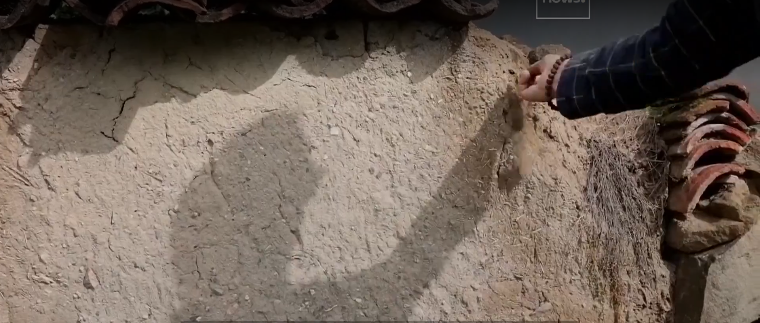Architects in Bulgaria are turning to the wisdom of the past and blending it with modern techniques to build homes that offer refuge from scorching heatwaves. They say ecological and local building materials like straw and clay allow for better ventilation and insulation.
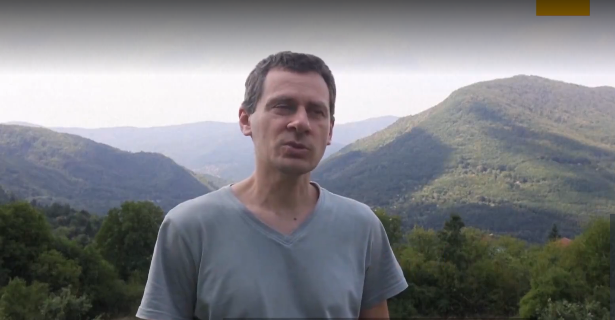 Kamen Pramatarov is an architect who built and lives in a small house in a small village. His house is constructed using cob, a natural building material typically made from a mixture of clay, sand, straw, and water.
Kamen Pramatarov is an architect who built and lives in a small house in a small village. His house is constructed using cob, a natural building material typically made from a mixture of clay, sand, straw, and water.
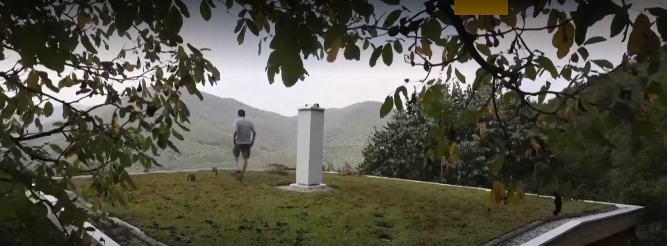 It also has a green roof that enhances its natural insulation. “The green roof plays a role in the thermoregulation of the house, because the flat roof is extremely heated by the direct sun, and even if it has good thermal insulation, this leads to heating of the entire house,” Pramatarov said. “Here, the vegetation perfectly copes with the overheating of the house, and in winter it is additional thermal insulation”. Pramatarov says cob-made walls help maintain in-house humidity.
It also has a green roof that enhances its natural insulation. “The green roof plays a role in the thermoregulation of the house, because the flat roof is extremely heated by the direct sun, and even if it has good thermal insulation, this leads to heating of the entire house,” Pramatarov said. “Here, the vegetation perfectly copes with the overheating of the house, and in winter it is additional thermal insulation”. Pramatarov says cob-made walls help maintain in-house humidity.
Large windows and eaves shield from the intense summer sun while allowing winter sunshine to enter.
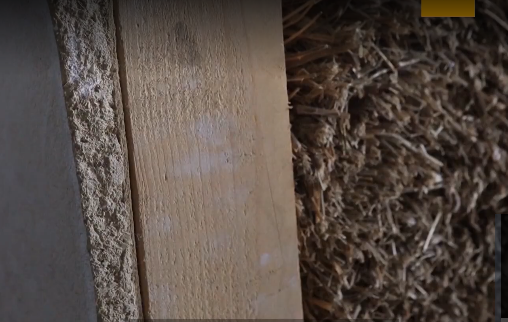 At the Viverde Straw Modules factory wheat straw is transformed into building modules. Co-owner Velin Nikolov says there are several advantages to living in a straw home. “Upon entering a straw house, you immediately notice a comfortable temperature – cool in the summer and warm in the winter,” Nikolov said. “Thanks to its excellent insulation, the house maintains a stable temperature, resisting fluctuations caused by the outside weather conditions,” he added.
At the Viverde Straw Modules factory wheat straw is transformed into building modules. Co-owner Velin Nikolov says there are several advantages to living in a straw home. “Upon entering a straw house, you immediately notice a comfortable temperature – cool in the summer and warm in the winter,” Nikolov said. “Thanks to its excellent insulation, the house maintains a stable temperature, resisting fluctuations caused by the outside weather conditions,” he added.
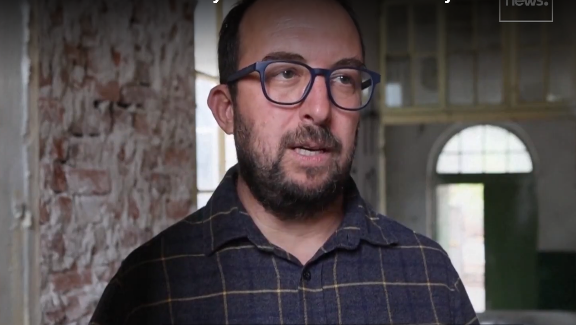 “We seem to be seeing an awareness among people that one should value one’s health and strive for the comfort that comes from nature”.
“We seem to be seeing an awareness among people that one should value one’s health and strive for the comfort that comes from nature”.
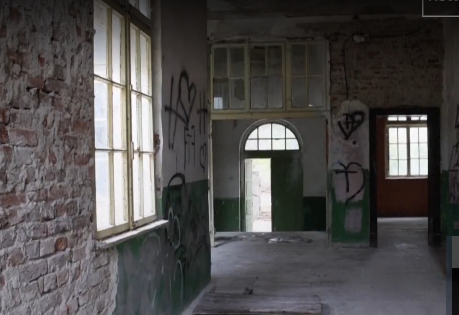 The Institute for Environmental Construction is constructing its headquarters on the site of a former school building. “The aim of this institute is to train specialists, people who work in construction, as well as people who can change their environment on their own in their daily lives and even inspire young people,” Borislav Slavchov from the IEC said. “Ecological construction and ecological lifestyle, ecological philosophy, by transmitting the knowledge that comes from our roots, from our ancestors, in a modern new way,” Slavchov added.
The Institute for Environmental Construction is constructing its headquarters on the site of a former school building. “The aim of this institute is to train specialists, people who work in construction, as well as people who can change their environment on their own in their daily lives and even inspire young people,” Borislav Slavchov from the IEC said. “Ecological construction and ecological lifestyle, ecological philosophy, by transmitting the knowledge that comes from our roots, from our ancestors, in a modern new way,” Slavchov added.
You can read the original article at nz.news.yahoo.com

